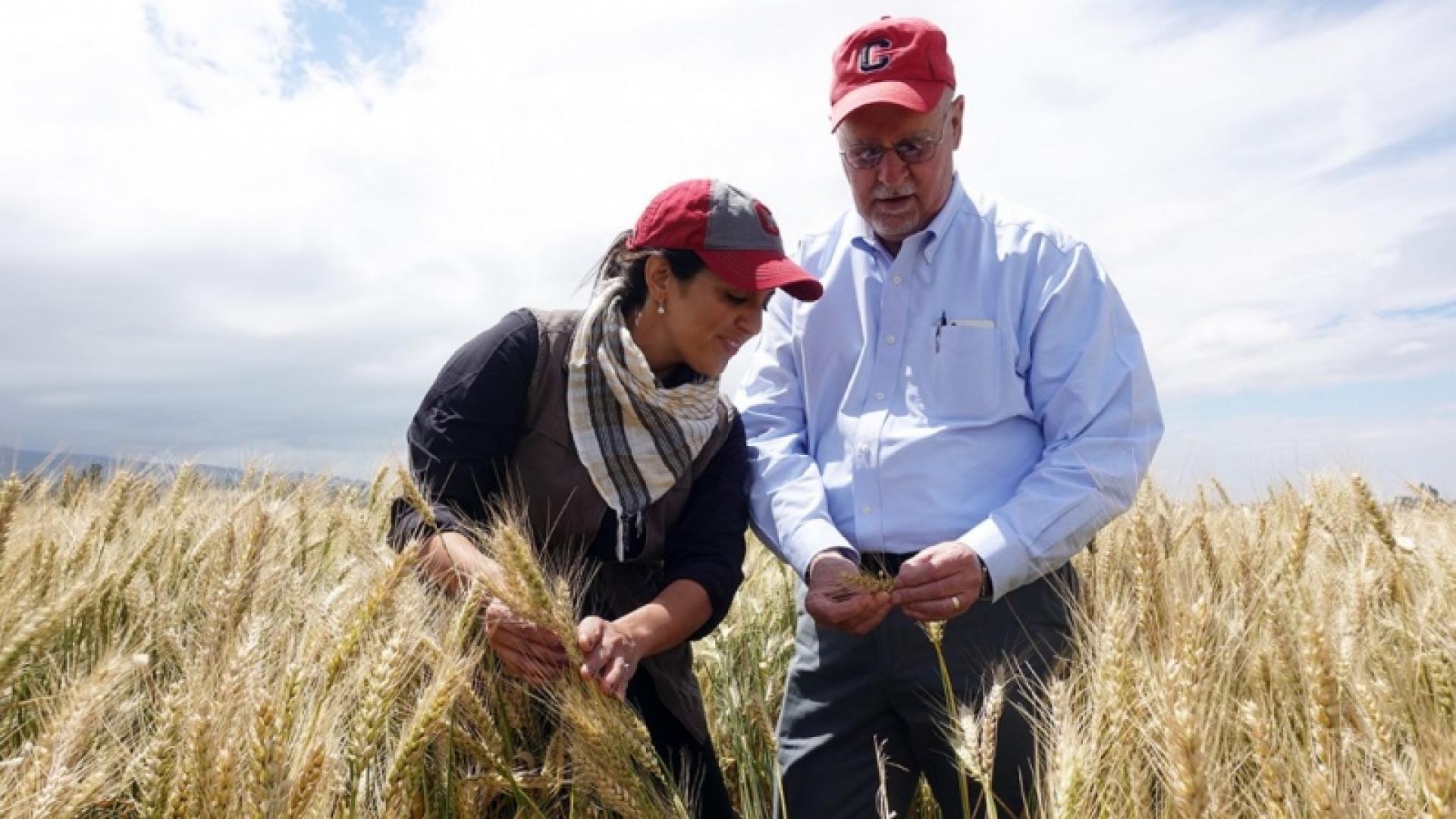When Norman Borlaug said, “Rust never sleeps,” he was warning of the emergence of a highly virulent stem rust pathogen that threated wheat crops around the world. First identified in the wheat fields of Uganda, the fungal pathogen known as Ug99 contained the genetic firepower to overwhelm wheat varieties grown around the world.
Borlaug knew global food security was at risk and that it was time to sound the alarm.
For more than a decade, two global wheat research projects led by the Borlaug Global Rust Initiative (BGRI) based at Cornell University responded to that alarm. Through two global research projects — the Durable Rust Resistance in Wheat (DRRW) and Delivering Genetic Gain in Wheat (DGGW) — the BGRI brought together vast numbers of researchers and scientific knowledge to combat threats to wheat security. Experts from over 20 renowned global institutions worked together with national scientists to share knowledge and engage with farmers. Over the course of 12 years, the DRRW and DGGW forged an international community of scientists, farmers, policymakers and more to grow a more prosperous and wheat-secure future.
During the DRRW project from 2008-20016, scientists emboldened by Borlaug’s early exhortations developed new wheat varieties resistant to Ug99. Those collaborative efforts at a global scale formed a bulwark against the spread of Ug99, thus averting catastrophic events that threatened one of the world’s most important food crops.
Even with Ug99 subdued, the world’s wheat fields still faced many threats. Diseases like stripe rust threatened crops and growing climate shocks produced more droughts and rising temperatures. And with the world’s growing population, simply sustaining current wheat yields would not be enough to ensure food security.
Thus, the DGGW project was formed in 2016 to produce wheat that not only could withstand diseases and adapt to climate change, but would also respond to more of the needs of farmers and consumers.
Today we look back through our archives to highlight a few of the research achievements that were key to the progress of these global, collaborative research projects:
- April 2016: Helping Nepalese farmers adapt to climate change
- July 2017: Developing heat and drought tolerant wheat for Asia and Africa
- January 2018: Breakthrough in the battle against Ug99
- January 2019: Yr15 wheat stripe rust resistance gene: discovery, cloning and future perspectives
- September 2019: Researchers turn to barberry for clues to wheat disease
- August 2019: Smarter deployment of disease-resistance genes critical for safeguarding world’s food supplies
- November 2019: Work on Himalayan yellow rust population published in APS journal Phytopathology
- January 2020: Ug99 and Somatic Hybridization: An interview with Melania Figueroa
- February 2020: Using DNA Fingerprinting to Determine Varietal Adoption in Wheat across Bangladesh and Nepal
- July 2020: Harnessing the potential of state-of-the-art genomic technologies for accelerating the rate of genetic gain in wheat
The work continues with the Accelerating Genetic Gains in Maize and Wheat (AGG) project led by the International Maize and Wheat Improvement Center (CIMMYT). The DRRW, DGGW and AGG were funded by the Bill & Melinda Gates Foundation and the UK’s Foreign, Commonwealth and Development Office.





